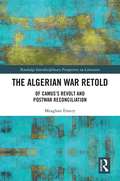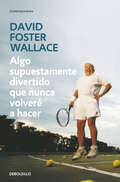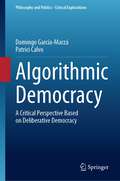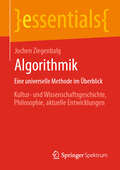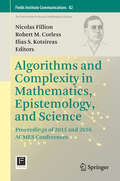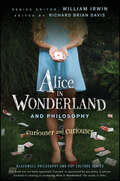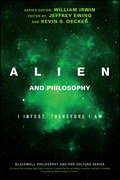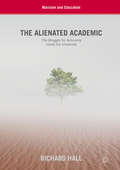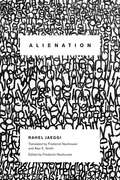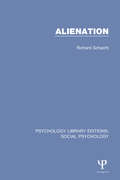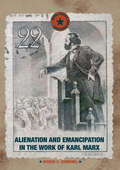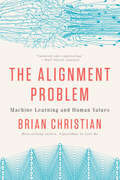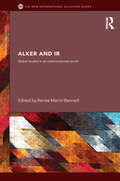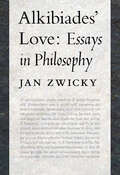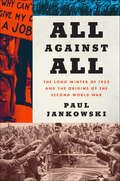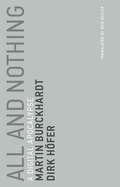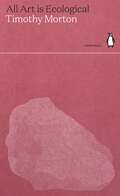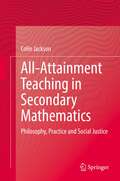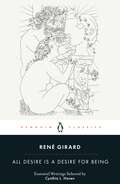- Table View
- List View
The Algerian War Retold: Of Camus’s Revolt and Postwar Reconciliation (Routledge Interdisciplinary Perspectives on Literature)
by Meaghan EmeryThe Algerian War Retold: Of Camus’s Revolt and Postwar Reconciliation focuses on specific aspects of Albert Camus’s ethical thought through a study of his writings in conjunction with late 20th- and early 21st-century works written by Franco-Maghrebi authors on the topic of the Algerian War (1954-1962). It combines historical inquiry with literary analysis in order to examine the ways in which Camus’s concept of revolt -- in his novels, journalistic writing, and philosophical essays -- reverberates in productions pertaining to that war. Following an examination of Sartre’s and Camus’s debate over revolution and violence, one that in another iteration asks whether FLN-sponsored terrorism was justified, The Algerian War Retold uncovers how today’s writers have adopted paradigms common to both Sartre’s and Camus’s oeuvres when seeking to break the silence and influence France’s national narrative. In the end, it attempts to answer the critical questions raised by literary acts of violence, including whether Camusian ethics ultimately lead to justice for the Other in revolt. These questions are particularly poignant in view of recent presidential declarations in response to years of active pressure applied by associations and other citizens’ groups, prompting the French government to acknowledge the state’s abandonment of the harkis, condemn the repression of peaceful protest, and recognize the French army’s systematic use of torture in Algeria.
Algo supuestamente divertido que nunca volveré a hacer
by David Foster WallaceEste artículo es una de las radiografías más agudas e irreverentes de la cultura americana de fin de siglo, en la que se entremezclan la familiaridad, el asombro y una mordacidad descabellada. Foster Wallace elabora en Algo supuestamente divertido que nunca volveré a hacer una postal gigantesca basada en su experiencia en un crucero de lujo por el Caribe. Lo que a primera vista parece ser un simple viaje «para relajarse», en manos de un humor delirante y un cinismo corrosivo acabará convirtiéndose en el horror más absoluto. La crítica ha dicho...«La obra de no ficción más brillante y divertida que se ha escrito en los últimos años.»John Glassie, Time Out New York «Animado por una prosa maravillosamente exuberante [...] este volumen confirma al señor Wallace como uno de los talentos más destacados de su generación.»The New York Times «Wallace escribe con una intensidad que transforma un reportaje errático en una forma sui generis de filosofía.»Kirkus Reviews «Su instinto para reproducir lo coloquial avergonzaría a maestros como Pynchon y DeLillo, y la sobriedad humana que confiere a sus temas, de ficción o de no ficción, deberían ser un modelo para cualquiera que escriba crítica cultural, tanto en la forma de relatos como en ensayos como estos.»Publishers Weekly
Algorithmic Democracy: A Critical Perspective Based on Deliberative Democracy (Philosophy and Politics - Critical Explorations #29)
by Domingo García-Marzá Patrici CalvoBased on a deliberative democracy, this book uses a hermeneutic-critical methodology to study bibliographical sources and practical issues in order to analyse the possibilities, limits and consequences of the digital transformation of democracy. Drawing on a two-way democracy, the aim of this book is intended as an aid for thinking through viable alternatives to the current state of democracy with regard to its ethical foundations and the moral knowledge implicit in or assumed by the way we perceive and understand democracy. It is intended to stimulate reflection and discussion on the basis that, by addressing what we understand as democracy, we can inevitably influence the reality known as democracy. Democracy’s evident regression in today’s world makes this all too apparent: it has become a hostage to all kinds of autocracies and technopopulisms, which are supported to a greater or lesser extent by the current algorithmic revolution.
Algorithmik Eine universelle Methode im Überblick: Kultur- und Wissenschaftsgeschichte, Philosophie, aktuelle Entwicklungen (essentials)
by Jochen ZiegenbalgDieses essential zeigt aus einer allgemeinbildenden und allgemeinverständlichen Perspektive, wie universell und bedeutend die algorithmische Methode ist. Es beleuchtet dabei sowohl die historischen Anfänge des algorithmischen Denkens und seine philosophischen Hintergründe als auch seine Relevanz für aktuelle Anwendungen – etwa im Bereich der Programmierung bis hin zu künstlicher Intelligenz. Die kompakte, in sich geschlossene Darstellung ist dabei weitestgehend anschaulicher Natur – ganz im Sinne der Methodologie des algorithmischen Arbeitens, die von Konstruktivität, Elementarität und explorativem Problemlösen geprägt ist. Auf technische Formulierungen wird in diesem essential so weit wie möglich verzichtet.
Algorithms and Complexity in Mathematics, Epistemology, and Science: Proceedings of 2015 and 2016 ACMES Conferences (Fields Institute Communications #82)
by Nicolas Fillion Robert M. Corless Ilias S. KotsireasACMES (Algorithms and Complexity in Mathematics, Epistemology, and Science) is a multidisciplinary conference series that focuses on epistemological and mathematical issues relating to computation in modern science. This volume includes a selection of papers presented at the 2015 and 2016 conferences held at Western University that provide an interdisciplinary outlook on modern applied mathematics that draws from theory and practice, and situates it in proper context. These papers come from leading mathematicians, computational scientists, and philosophers of science, and cover a broad collection of mathematical and philosophical topics, including numerical analysis and its underlying philosophy, computer algebra, reliability and uncertainty quantification, computation and complexity theory, combinatorics, error analysis, perturbation theory, experimental mathematics, scientific epistemology, and foundations of mathematics. By bringing together contributions from researchers who approach the mathematical sciences from different perspectives, the volume will further readers' understanding of the multifaceted role of mathematics in modern science, informed by the state of the art in mathematics, scientific computing, and current modeling techniques.
Algorithms of Education: How Datafication and Artificial Intelligence Shape Policy
by Kalervo N. Gulson Sam Sellar P. Taylor WebbA critique of what lies behind the use of data in contemporary education policy While the science fiction tales of artificial intelligence eclipsing humanity are still very much fantasies, in Algorithms of Education the authors tell real stories of how algorithms and machines are transforming education governance, providing a fascinating discussion and critique of data and its role in education policy.Algorithms of Education explores how, for policy makers, today&’s ever-growing amount of data creates the illusion of greater control over the educational futures of students and the work of school leaders and teachers. In fact, the increased datafication of education, the authors argue, offers less and less control, as algorithms and artificial intelligence further abstract the educational experience and distance policy makers from teaching and learning. Focusing on the changing conditions for education policy and governance, Algorithms of Education proposes that schools and governments are increasingly turning to &“synthetic governance&”—a governance where what is human and machine becomes less clear—as a strategy for optimizing education.Exploring case studies of data infrastructures, facial recognition, and the growing use of data science in education, Algorithms of Education draws on a wide variety of fields—from critical theory and media studies to science and technology studies and education policy studies—mapping the political and methodological directions for engaging with datafication and artificial intelligence in education governance. According to the authors, we must go beyond the debates that separate humans and machines in order to develop new strategies for, and a new politics of, education.
Alice in Wonderland and Philosophy
by William Irwin Richard Brian DavisThe perfect companion to Lewis Carroll's classic book and director Tim Burton's March 2010 remake of Alice in WonderlandAlice?s Adventures in Wonderland has fascinated children and adults alike for generations. Why does Lewis Carroll introduce us to such oddities as blue caterpillars who smoke hookahs, cats whose grins remain after their heads have faded away, and a White Queen who lives backwards and remembers forwards? Is it all just nonsense? Was Carroll under the influence? This book probes the deeper underlying meaning in the Alice books, and reveals a world rich with philosophical life lessons. Tapping into some of the greatest philosophical minds that ever lived?Aristotle, Hume, Hobbes, and Nietzsche?Alice in Wonderland and Philosophy explores life?s ultimate questions through the eyes of perhaps the most endearing heroine in all of literature. Looks at compelling issues such as perception and reality as well as how logic fares in a world of lunacy, the Mad Hatter, clocks, and temporal passageOffers new insights into favorite Alice in Wonderland characters and scenes, including the Mad Hatter and his tea party, the violent Queen of Hearts, and the grinning Cheshire CatAccessible and entertaining, Alice in Wonderland and Philosophy will enrich your experience of Alice's timeless adventures with new meaning and fun.
Alien and Philosophy: I Infest, Therefore I Am (The Blackwell Philosophy and Pop Culture Series)
by William IrwinAlien and Philosophy: I Infest, Therefore I Am presents a philosophical exploration of the world of Alien, the simultaneously horrifying and thought-provoking sci-fi horror masterpiece, and the film franchise it spawned. The first book dedicated to exploring the philosophy raised by one of the most successful and influential sci-fi franchises of modern times Features contributions from an acclaimed team of scholars of philosophy and pop culture, led by highly experienced volume editors Explores a huge range of topics that include the philosophy of fear, Just Wars, bio-weaponry, feminism and matriarchs, perfect killers, contagion, violation, employee rights and Artificial Intelligence Includes coverage of H.R. Giger’s aesthetics, the literary influences of H.P. Lovecraft, sci-fi and the legacy of Vietnam, and much more!
Alien Phenomenology, or What It’s Like to Be a Thing (Posthumanities)
by Ian BogostHumanity has sat at the center of philosophical thinking for too long. The recent advent of environmental philosophy and posthuman studies has widened our scope of inquiry to include ecosystems, animals, and artificial intelligence. Yet the vast majority of the stuff in our universe, and even in our lives, remains beyond serious philosophical concern. In Alien Phenomenology, or What It&’s Like to Be a Thing, Ian Bogost develops an object-oriented ontology that puts things at the center of being—a philosophy in which nothing exists any more or less than anything else, in which humans are elements but not the sole or even primary elements of philosophical interest. And unlike experimental phenomenology or the philosophy of technology, Bogost&’s alien phenomenology takes for granted that all beings interact with and perceive one another. This experience, however, withdraws from human comprehension and becomes accessible only through a speculative philosophy based on metaphor.Providing a new approach for understanding the experience of things as things, Bogost also calls on philosophers to rethink their craft. Drawing on his own background as a videogame designer, Bogost encourages professional thinkers to become makers as well, engineers who construct things as much as they think and write about them.
The Alienated Academic: The Struggle for Autonomy Inside the University (Marxism and Education)
by Richard HallHigher education is increasingly unable to engage usefully with global emergencies, as its functions are repurposed for value. Discourses of entrepreneurship, impact and excellence, realised through competition and the market, mean that academics and students are increasingly alienated from themselves and their work. This book applies Marx’s concept of alienation to the realities of academic life in the Global North, in order to explore how the idea of public education is subsumed under the law of value. In a landscape of increased commodification of higher education, the book explores the relationship between alienation and crisis, before analysing how academic knowledge, work, identity and life are themselves alienated. Finally, it argues that through indignant struggle, another world is possible, grounded in alternative forms of organising life and producing socially-useful knowledge, ultimately requiring the abolition of academic labour. This pioneering work will be of interest and value to all those working in the higher education sector, as well as those concerned with the rise of neoliberalism and marketization within universities.
The Alienated Subject: On the Capacity to Hurt
by James A. TynerA timely and provocative discussion of alienation as an intersectional category of life under racial capitalism and white supremacy From the divisiveness of the Trump era to the Covid-19 pandemic, alienation has become an all-too-familiar contemporary concept. In this groundbreaking book, James A. Tyner offers a novel framework for understanding the alienated subject, situating it within racial capitalism and white supremacy. Directly addressing current economic trends and their rhetoric of xenophobia, discrimination, and violence, The Alienated Subject exposes the universal whitewashing of alienation. Drawing insight from a variety of sources, including Marxism, feminism, existentialism, and critical race theory, Tyner develops a critique of both the liberal subject and the alienated subject. Through an engagement with the recent pandemic and the Black Lives Matter movement, he demonstrates how the alienated subject is capable of both compassion and cruelty; it is a sadomasochist. Tyner goes on to emphasize the importance of the particular places we find the alienated subject and how the revolutionary transformation of alienation is inherently a spatial struggle. Returning to key interlocutors from Sartre to Fromm, he examines political notions of distance and the spatial practices of everyday life as well as the capitalist conditions that give rise to the alienated subject.For Tyner, the alienated subject is not the iconic, romanticized image of Marx&’s proletariat. Here he calls for an affirmation of love as a revolutionary concept, necessary for the transformation of a society marred by capitalism into an emancipated, caring society conditioned by socially just relations.
Alienation (New Directions in Critical Theory #4)
by Rahel JaeggiThe Hegelian-Marxist idea of alienation fell out of favor after the postmetaphysical rejection of humanism and essentialist views of human nature. In this book Rahel Jaeggi draws on the Hegelian philosophical tradition, phenomenological analyses grounded in modern conceptions of agency, and recent work in the analytical tradition to reconceive alienation as the absence of a meaningful relationship to oneself and others, which manifests in feelings of helplessness and the despondent acceptance of ossified social roles and expectations.A revived approach to alienation helps critical social theory engage with phenomena such as meaninglessness, isolation, and indifference. By severing alienation's link to a problematic conception of human essence while retaining its social-philosophical content, Jaeggi provides resources for a renewed critique of social pathologies, a much-neglected concern in contemporary liberal political philosophy. Her work revisits the arguments of Rousseau, Hegel, Kierkegaard, and Heidegger, placing them in dialogue with Thomas Nagel, Bernard Williams, and Charles Taylor.
Alienation
by Frederick Neuhouser Rahel Jaeggi Alan E. SmithThe Hegelian-Marxist idea of alienation fell out of favor during the post-metaphysical rejection of humanism and essentialist views of human nature. In this book Jaeggi draws on phenomenological analyses grounded in modern conceptions of agency, along with recent work in the analytical tradition, to reconceive of alienation as the absence of a meaningful relationship to oneself and others, which manifests itself in feelings of helplessness and the despondent acceptance of ossified social roles and expectations.A revived approach to alienation helps critical social theory engage with phenomena, such as meaninglessness, isolation, and indifference, which have broad implications for issues of justice. By severing alienation's link to a problematic conception of human essence while retaining its social-philosophical content, Jaeggi provides resources for a renewed critique of social pathologies, a much-neglected concern in contemporary liberal political philosophy. Her work revisits the arguments of Rousseau, Hegel, Kierkegaard, and Heidegger, placing them in dialogue with Thomas Nagel, Bernard Williams, and Charles Taylor.
Alienation (Psychology Library Editions: Social Psychology)
by Richard SchachtFirst published in 1970, original blurb: ‘Alienation’ is the catchword of our time. It has been applied to everything from the new politics to the anti-heroes of today’s films. But what does it mean to say that someone is alienated? Is alienation a state of mind, or a relationship? If modern man is indeed alienated, is it from his work, his government, his society, or himself – or from all of these? Richard Schacht, in this intelligent analysis, gets to the root of these questions. Examining the concept of alienation in the works of Hegel and Marx, he gives a clear account of the origins of the modern usage of the term. Among the many insights to be gained from this analysis is a clear understanding of Hegel’s influence on Marx in this most crucial area. Mr Schacht goes on to discuss the concept of alienation in recent philosophical and sociological literature, particularly in the writings of Erich Fromm. Here he finds a great deal of confusion, which has resulted in a series of almost universally unquestioned misconceptions. This, then, is a book for all of us who use – and mis-use – the term ‘alienation’, and who are interested in the concepts it brings to mind. The arguments of Professor Walter Kaufmann’s introductory essay provide a useful background for Mr Schacht’s analysis. In this essay, Professor Kaufmann states that ‘henceforth nobody should write about alienation without first reading Schacht’s book.’
Alienation
by Alan E. Smith Rahel Jaeggi Frederick NeuhouserThe Hegelian-Marxist idea of alienation fell out of favor during the post-metaphysical rejection of humanism and essentialist views of human nature. In this book Jaeggi draws on phenomenological analyses grounded in modern conceptions of agency, along with recent work in the analytical tradition, to reconceive of alienation as the absence of a meaningful relationship to oneself and others, which manifests itself in feelings of helplessness and the despondent acceptance of ossified social roles and expectations.A revived approach to alienation helps critical social theory engage with phenomena, such as meaninglessness, isolation, and indifference, which have broad implications for issues of justice. By severing alienation's link to a problematic conception of human essence while retaining its social-philosophical content, Jaeggi provides resources for a renewed critique of social pathologies, a much-neglected concern in contemporary liberal political philosophy. Her work revisits the arguments of Rousseau, Hegel, Kierkegaard, and Heidegger, placing them in dialogue with Thomas Nagel, Bernard Williams, and Charles Taylor.
Alienation and Emancipation in the Work of Karl Marx (Marx, Engels, and Marxisms)
by George C. ComninelThis book considers Karl Marx’s ideas in relation to the social and political context in which he lived and wrote. It emphasizes both the continuity of his commitment to the cause of full human emancipation, and the role of his critique of political economy in conceiving history to be the history of class struggles. The book follows his developing ideas from before he encountered political economy, through the politics of 1848 and the Bonapartist “farce,”, the maturation of the critique of political economy in the Grundrisse and Capital, and his engagement with the politics of the First International and the legacy of the Paris Commune. Notwithstanding errors in historical judgment largely reflecting the influence of dominant liberal historiography, Marx laid the foundations for a new social theory premised upon the historical consequences of alienation and the potential for human freedom.
Alienation and Nature in Environmental Philosophy
by Simon HailwoodMany environmental scientists, scholars and activists characterise our situation as one of alienation from nature, but this notion can easily seem meaningless or irrational. In this book, Simon Hailwood critically analyses the idea of alienation from nature and argues that it can be a useful notion when understood pluralistically. He distinguishes different senses of alienation from nature pertaining to different environmental contexts and concerns, and draws upon a range of philosophical and environmental ideas and themes including pragmatism, eco-phenomenology, climate change, ecological justice, Marxism and critical theory. His novel perspective shows that different environmental concerns - both anthropocentric both anthropocentric and nonanthropocentric - can dovetail, rather than compete with, each other, and that our alienation from nature need not be something to be regretted or overcome. His book will interest a broad readership in environmental philosophy and ethics, political philosophy, geography and environmental studies.
The Alignment Problem: Machine Learning And Human Values
by Brian ChristianA jaw-dropping exploration of everything that goes wrong when we build AI systems and the movement to fix them. Today’s “machine-learning” systems, trained by data, are so effective that we’ve invited them to see and hear for us—and to make decisions on our behalf. But alarm bells are ringing. Recent years have seen an eruption of concern as the field of machine learning advances. When the systems we attempt to teach will not, in the end, do what we want or what we expect, ethical and potentially existential risks emerge. Researchers call this the alignment problem. Systems cull résumés until, years later, we discover that they have inherent gender biases. Algorithms decide bail and parole—and appear to assess Black and White defendants differently. We can no longer assume that our mortgage application, or even our medical tests, will be seen by human eyes. And as autonomous vehicles share our streets, we are increasingly putting our lives in their hands. The mathematical and computational models driving these changes range in complexity from something that can fit on a spreadsheet to a complex system that might credibly be called “artificial intelligence.” They are steadily replacing both human judgment and explicitly programmed software. In best-selling author Brian Christian’s riveting account, we meet the alignment problem’s “first-responders,” and learn their ambitious plan to solve it before our hands are completely off the wheel. In a masterful blend of history and on-the ground reporting, Christian traces the explosive growth in the field of machine learning and surveys its current, sprawling frontier. Readers encounter a discipline finding its legs amid exhilarating and sometimes terrifying progress. Whether they—and we—succeed or fail in solving the alignment problem will be a defining human story. The Alignment Problem offers an unflinching reckoning with humanity’s biases and blind spots, our own unstated assumptions and often contradictory goals. A dazzlingly interdisciplinary work, it takes a hard look not only at our technology but at our culture—and finds a story by turns harrowing and hopeful.
Alker and IR: Global Studies in an Interconnected World (New International Relations)
by Renée Marlin-BennettInternational Relations have rarely been considered a synthesis of humanistic and social sciences approaches to understand the complex connections of a global, and globalizing, world. One of the few scholars to have accomplished this creative blend was Hayward R. Alker. Alker and IR presents a set of visionary and original essays from scholars who have been profoundly influenced by Alker's approach to global studies. They build on the foundation he laid, demonstrating the practicality and usefulness of ethically grounded, theoretically informed and interdisciplinary research for producing knowledge. They show how substantive boundaries can be crossed and methodological rules rewritten in the search for a deeper, more contextualized approach to global politics. This book will be of interest to researchers and students of international relations and global politics.
Alkibiades' Love
by Jan ZwickyAlkibiades, a central character in Plato's Symposium, claims that philosophy touches him to the quick. When Socrates speaks, he's often moved to tears and realizes he must change his life. In Alkibiades' Love, Jan Zwicky demonstrates that this image of philosophy is not anachronistic, but remains the living heart of the discipline. Philosophy can indeed matter to our lives, but for it to do so, we must reconceive the methods that, since the Enlightenment, have dominated its self-image in the West. In these meticulously researched essays, Zwicky argues that analytic and poststructuralist philosophy are not simply fashions in academic discourse, but are manifestations of the technocracy which they sustain and promote. The alternative she develops, by showing it in action, is lyric philosophy - an integrated mode of understanding whose foundations lie in the way we comprehend music and metaphor. Written in lucid and powerful prose, Alkibiades' Love will interest a broad readership, from students of ancient Greek philosophy to ecologists seeking a coherent foundation for their work. Zwicky offers deep and original readings of Freud, Plato, and Simone Weil, and resuscitates Max Wertheimer's work, linking it to our comprehension of mathematics, metaphor, and ecological structures. Zwicky has been hailed as one of the most important and original thinkers of our time. Alkibiades' Love illuminates and extends her groundbreaking work while providing an accessible introduction for those coming to her thought for the first time.
All Against All: The Long Winter of 1933 and the Origins of the Second World War
by Paul Jankowski“This crisply written, well-documented account . . . examines diplomatic, military, political and economic developments in a crucial period leading up to WWII” (Publishers Weekly)All Against All is the story of how a single winter, between November 1932 and April 1933, put the postwar world back on the path to global conflict. Historian Paul Jankowski reveals how domestic passions within various nations colluded to drive their governments towards a war few of them wanted and none of them could control.Over these six months, collective delusions took hold in both liberal and authoritarian regimes. Hitler came to power; Japan invaded Jehol and left the League of Nations; Mussolini looked towards Africa; Roosevelt was elected; France changed governments three times; and the victors of the Great War fell out acrimoniously over war debts, arms, currency, tariffs, and Germany. A world economic conference offered hope, only to collapse when the US went its own way.All Against All reconstructs a series of seemingly disparate happenings whose connections can only be appraised in retrospect. As he weaves these stories together, Jankowski offers a cautionary tale for our times. While we do not know for certain where today’s crises will take us, we do know that those of the 1930s culminated in the Second World War.
All and Nothing: A Digital Apocalypse (Untimely Meditations #5)
by Martin Burckhardt Dirk HoferWhy 1 = presence and 0 = absence and the digital world formula is x = xn: an exploration of meaning in a universe of infinite replication.In the beginning was the Zero, and the Zero was with God, and God was the One.—All and NothingIn 1854, the British mathematician George Boole presented the idea of a universe the elements of which could be understood in terms of the logic of absence and presence: 0 and 1, all and nothing—the foundation of binary code. The Boolean digits 0 and 1 do not designate a quantity. In the Boolean world, x times x always equals x; all and nothing meet in the formula x = xn. As everything becomes digitized, God the clockmaker is replaced by God the programmer. This book–described by its authors as “a theology for the digital world”—explores meaning in a digital age of infinite replication, in a world that has dissolved into information and achieved immortality by turning into a pure sign. All and Nothing compares information that spreads without restraint to a hydra—the mythological monster that grew two heads for every one that was cut off. Information is thousand-headed and thousand-eyed because Hydra's tracks cannot be deleted. It shows that when we sit in front of a screen, we are actually on the other side, looking at the world as an uncanny reminder of the nondigitized. It compares our personal data to our shadows and our souls, envisioning the subconscious laid out on a digital bier like a corpse. The digital world, the authors explain, summons forth fantasies of a chiliastic or apocalyptic nature. The goal of removing the representative from mathematics has now been achieved on a greater scale than Boole could have imagined.
All Art is Ecological (Green Ideas)
by Timothy MortonIn twenty short books, Penguin brings you the classics of the environmental movement.Provocative and playful, All Art is Ecological explores the strangeness of living in an age of mass extinction, and shows us that emotions and experience are the basis for a deep philosophical engagement with ecology.Over the past 75 years, a new canon has emerged. As life on Earth has become irrevocably altered by humans, visionary thinkers around the world have raised their voices to defend the planet, and affirm our place at the heart of its restoration. Their words have endured through the decades, becoming the classics of a movement. Together, these books show the richness of environmental thought, and point the way to a fairer, saner, greener world.
All-Attainment Teaching in Secondary Mathematics: Philosophy, Practice and Social Justice
by Colin JacksonThis book is about the promotion of all-attainment teaching in the mathematics classroom. The book contains the individual stories of six teachers working in three different schools: an inner London comprehensive with a largely working class intake, a comprehensive on the south coast and a rural comprehensive in Cambridgeshire. Each story describes and explains in brief the background of the teacher and how each came to teach all-attainment groups in mathematics. The research reported in this book is the only close examination and analysis of the practices and methodologies of successful all-attainment educators in the modern age. Three major themes are identified and examined: what sustains the teachers; how they introduce, develop and maintain all-attainment teaching; and how they make all-attainment work in the classroom.From an analysis of these findings, the book presents two interrelated models of the knowledge and understandings the research has generated. The first one is an overarching model of situation and horizon. Used as a means of visualizing and understanding the current situation for teachers, it can aid in encouraging change for the better. The second model offers teachers a way to think of all-attainment teaching as an enabler for all students, most especially for disadvantaged students. Both models have original and explanatory power and offer new ways of conceptualizing how mathematics teaching for social justice might be understood and implemented, offering fresh perspectives and unique insights. As such it will be of help to students at undergraduate, Masters and doctoral level and to education researchers more widely.
All Desire is a Desire for Being
by René GirardA new selection of foundational works from the influential philosopher who developed the theory of mimetic desireWhy do humans have such a remarkable capacity for conflict? From ancient foundational myths to the modern era, the visionary thinker Rene Girard identified the constant, competing desires at the heart of our existence - desires that we copy from others, igniting a contagious violence. This remarkable and accessible new selection of Girard's work shows him as a writer for our times, as he ranges over human imitation and rivalry, herd behaviour, scapegoating and how our violent longings play out in stories, from Shakespeare to religion. 'The explosion of social media, the resurgence of populism, and the increasing virulence of reciprocal violence all suggest that the contemporary world is becoming more and more recognizably "Girardian" in its behaviour' The New York Review of BooksEdited with an Introduction by Cynthia L. Haven
